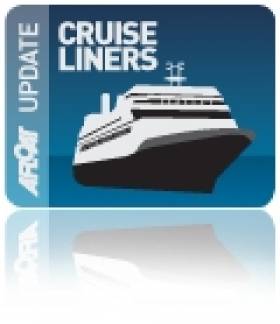Displaying items by tag: Oceania Cruises Marina
Cruiseship Calls with Suites by Ralph Lauren
#DESIGNER CRUISE SHIP – The cruiseship Marina (2011/65,999grt) which was only launched into service last year is on a port of call to Dublin today, having departed on a cruise from Dover, writes Jehan Ashmore.
Marina berthed alongside Ocean Pier this morning and the 1,250 passenger (double occupancy) vessel was built by Fincantieri Sestri Ponente in Italy for Oceania Cruises. The compnay also operate a sistership Riviera which was completed this year.
The 15-decked Marina which has 11 decks assigned for guests and served by a crew of 800. The guest to crew staff ratio is being 1.57 to 1. Oceania Cruises claim that the pair of mid-sized newbuilds are the most beautiful, elegant and sophisticated ships to debut in the past 50 years.
Designer features include the Lalique Grand Staircase and owner's suites furnished under the Ralph Lauren Home name, which showcase high quality standards in residential design and furnishings. Of the many facilities The Bon Appétit Culinary Center, is unique as it is the only hands-on cooking school at sea. There is also an artists-in-residence to teach fine arts in the Artists Loft.
To gain a greater insight to what's on board take a virtual tour of the vessel which has the following principle dimensions; length: 785 feet, beam: 106 feet and she draws on a maximum draught of 24 feet.
As is the norm the nationality of the staff hotel crew are international while the officers are European. She is registered in the Pacific island nation of the Marshall Islands.





























































